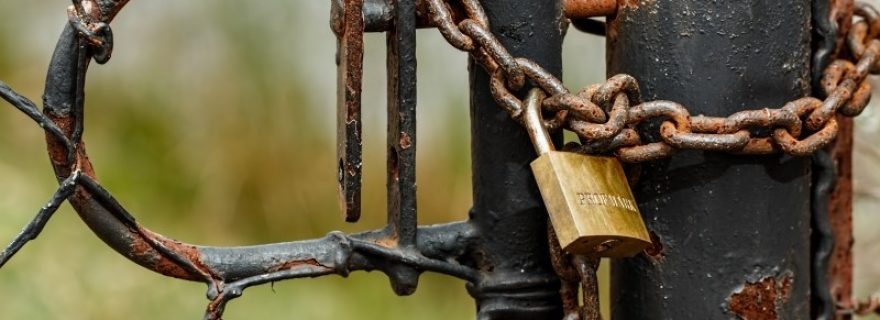How to Deal with Puzzling Brokers in Ethnographic Fieldwork?
As anthropologists, we rely heavily on gatekeepers. They are crucial figures in facilitating our access to the field and they might profoundly influence our ethnographic experience. But what to do when your main gatekeeper behaves like a puzzling broker?
When I went to Costa Rica to do the fieldwork that eventually allowed me to pursue my MA degree in Cultural Anthropology and Development Sociology, I did not know much about finance. Much less I was expecting to encounter a broker. After all, I was conducting research on conflicts over access to, and management of water. Yet, once there, one of the first persons I met turned out to be a broker. And a puzzling one at that!
Claire*: a people broker
Meeting Claire was the first thing I had on my agenda. Head of a local NGO and owner of a small environmentally friendly hostel, Claire seemed to be the best informant for my fieldwork. And for more reasons than one.
While striving to write a feasible research plan, I came across an interview that portrayed her as a key actor in the conflict I was about to study. She was presented as a leader of the local community and its spokesperson with the authorities. An exchange of emails started on the pretext of booking a room in her hostel, the only relatively cheap accommodation I could find from Europe, confirmed that image.
She wrote to me in a friendly manner and expressed her enthusiasm for my upcoming visit. Passionate about environmental issues and a defender of local community rights, she expressed her will to help me in my new adventure.
Claire was my broker. Not a financial one, but a “people” broker. She claimed to know the political arena around the management of water and the actors involved in and affected by the policies surrounding the issue. And she seemed to be willing to share her knowledge with me and to facilitate my access to the field.
I was excited to go on fieldwork. I couldn’t wait to meet her and be introduced to some of the people she claimed to represent.
Access... denied
Yet, after two weeks spent with Claire and her partner, I had still not met any local residents except the ones employed in the hostel. I started questioning my competence as an anthropologist. My repeated requests to meet one of the many people that enlivened her pacey stories of the aftermath of the conflict had not yet been successful. Had I involuntarily said or done something wrong? Was I considered untrustworthy or ill-intentioned?
Due to the hot temperatures and daily working duties, it was uncommon to meet people in the streets of the village. Since the first days of my stay, I have been warned not to go to bars alone at night because I would be mistaken for a prostitute and run into problems.
Feeling trapped and plagued by doubts, I decided to discuss the issue openly with Claire. At my question “If not through the NGO, how can I meet some of the people that were directly involved in the conflict?”, her abrupt reply stunned me: “You already know everyone you need to speak with!”
Of course, this was not the case. What she was implicitly saying was that I needed to rely exclusively on her if I wanted to get information about the conflict, the management of water, and the issues surrounding access to water. Clearly she was exercising her power and acting more like a blocker than a broker. What was her motivation for blocking my access to other informants?

Photo by Pexels
Uncertainty and risk
I still don’t know the true answer to that question. What I know is that I was left with two choices: believe her or find other ways to meet locals, knowing that this would probably mean the end of my relationship with Claire and her unfriendly network of authority spokespersons.
I took the risk and went for the second option. After an awkward conversation in which I thanked her for what she had done for me and once again expressed my need to meet locals, I went away.
I moved to a small room near the center of the village with Carmen*, a middle-aged woman of Italian origins. She introduced me to all the people in her circles, and what had at first seemed a place inhabited only by ghosts suddenly came alive.
Was she a pleasant and trustworthy broker? Again, I just don’t know. What I do know is that she, unlike Claire, facilitated my access to the field and allowed me to collect the information I needed.
New brokers on the horizon
All’s well that ends well. Not without difficulties, I was able to write a successful thesis and get my MA degree. Now new brokers are on the horizon. After my MA I joined the Moralising Misfortune project as a PhD researcher. Once again, I am striving to write a feasible research proposal, and I will soon go on fieldwork to study insurance in Italy.
This time, the fact that I will meet brokers is a certainty. But will I have similar experiences? Probably, yes. Will I be able to deal with the brokers – whether they be financial or people brokers – I encounter? Probably. Hopefully.
And what about you? Have you ever encountered a puzzling broker during your fieldwork experience? How did you deal with him or her? And how did this meeting affect your fieldwork?
*Not her real name



0 Comments
Add a comment